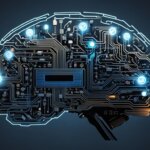Table of Contents
Computer programming, also known as coding, is the process of writing instructions for computing devices. These instructions are translated into a language that computers can understand. Programming languages like Python, JavaScript, Java, and the C-languages are commonly used by computer programmers. The tech industry relies heavily on computer programming for various applications, from web browsers to complex tasks like machine learning and artificial intelligence. Computer programmers need to have fluency in programming languages, as well as debugging and problem-solving skills. Programming jobs include computer programmers, web developers, software developers, and software engineers. By 2020, the median annual wage for computer and information technology occupations was $91,250.
Computer programming is a vital skill in today’s digital world. From smartphones to medical equipment, computer programming is at the core of every computing device we interact with. It allows us to communicate with machines and create innovative software and applications. In this article, we will delve deeper into the world of computer programming, exploring the different programming languages, the role of computer programmers, and the importance of this field in shaping the future of technology.
What is a Computer Program?
A computer program is a set of instructions that tells a computer what tasks to carry out. These instructions are written in programming languages and are then translated into machine language that the computer can understand. Computer programs can range from simple calculations to complex video games, big data analysis, and even autonomous driving. They communicate information to computing devices, which then execute tasks based on the given instructions.
Examples of computer programs include:
- Web browsers, which are user-facing programs
- Back-end development, which involves creating programs that handle tasks behind the scenes, such as server communication
Computer programs play a crucial role in enabling the functionality of computing devices and the software that runs on them. They serve as the bridge between users and machines, allowing us to interact with technology and perform various tasks.
The Structure of a Computer Program
A computer program typically consists of multiple components, including:
- Variables: Used to store and manipulate data
- Expressions: Combination of values, variables, and operators that produce a result
- Functions: Blocks of reusable code that perform specific tasks
- Control structures: Statements that control the flow of execution, such as loops and conditional statements
- Input/output operations: Interactions with the user and other external devices or systems
- Error handling: Mechanisms to handle and respond to errors or exceptional situations
These components work together to create a program that can perform a wide range of tasks, from simple calculations to complex operations. Programmers use programming languages to write and organize these components into a cohesive program.
Benefits of Computer Programs
“Computer programs enable us to harness the power of computing devices and automate various tasks, making our lives easier and more efficient.” – John Smith, Computer Scientist
Computer programs have revolutionized the way we live, work, and communicate. They offer several benefits, including:
- Increased productivity: By automating repetitive tasks, computer programs save time and effort
- Improved accuracy: With precise instructions, programs can perform calculations and operations without errors
- Enhanced problem-solving capabilities: Programs can analyze data and provide solutions to complex problems
- Expanded possibilities: Computer programs enable the development of new technologies and innovations
- Streamlined workflows: Programs can streamline processes, optimize resource allocation, and improve efficiency
Overall, computer programs have a profound impact on our daily lives and the functioning of modern society. They are the backbone of software development, enabling the creation of applications and systems that drive innovation across various industries.
How is Computer Programming Used?
Computer programming is a versatile and powerful tool that is utilized in various ways across different industries. Its applications range from creating software programs to managing and analyzing data. Let’s explore how computer programming is used in practice:
1. Program Creation and Application Development
Computer programming is at the core of program creation and application development. Programmers write code that forms the foundation of applications, such as photo editing software, word processors, and web browsers. By using a programming language, programmers can instruct computers to perform specific tasks and create applications that meet user requirements.
2. Data Management and Analysis
Programming languages are also instrumental in data management and analysis. Programmers develop systems that handle database management, ensuring efficient storage, retrieval, and organization of large amounts of data. Additionally, programming languages enable programmers to implement security protocols to protect sensitive information and develop memory backup systems to safeguard data in case of unexpected events.
Moreover, programmers play a crucial role in data analysis by creating algorithms and programs that process and extract meaningful insights from vast datasets. These insights help organizations make informed decisions and improve their operations.
“Programming is not just about coding. It’s about creating solutions to real-world challenges and using data effectively.”
3. Automation and Artificial Intelligence
Computer programming is closely linked to automation and artificial intelligence (AI). Programmers develop code that enables machines to automate tasks, increasing efficiency and productivity in various industries. From manufacturing processes to autonomous vehicles, computer programming is essential in creating systems that can perform complex tasks without human intervention.
Furthermore, programming is vital in the field of AI, where machine learning algorithms and neural networks are designed and implemented. These technologies enable computers to develop insights, make predictions, and learn from vast amounts of data, contributing to advancements in areas like healthcare, finance, and natural language processing.
Computer programming has a profound impact on our daily lives, shaping the digital world around us. It empowers us to create applications, manage data, and drive innovation across industries. The continuous evolution of computer programming will continue to have significant influence in the future, as technology becomes even more integrated into our lives.
Now that we understand how computer programming is used, let’s delve into what computer programmers actually do and the skills required in the field.
What Do Computer Programmers Do?
Computer programmers play a crucial role in the world of technology. Their primary responsibility is to write code in various programming languages such as JavaScript, Python, and C++. Depending on their area of focus, be it web development or software engineering, programmers utilize different languages to bring their ideas to life.
In addition to fluency in programming languages, computer programmers possess essential skills in debugging and modifying code, ensuring that programs run smoothly and efficiently. They are adept at identifying and resolving errors, making necessary improvements to optimize the functionality of software applications.
Furthermore, computer programmers often collaborate within teams to conceptualize the goals of an application, create a program layout, write code, and test the application for bugs and errors. Teamwork is a crucial aspect of the programming process, as it allows for effective problem-solving, knowledge sharing, and innovative thinking.
Computer programmers are involved in the entire lifecycle of a project, from its conception to the final release. They work meticulously to debug and resolve errors, ensuring that the application meets the requirements of the end-users. Once the application has undergone thorough testing, computer programmers release it to beta users for feedback and improvement.
In summary, computer programmers:
- Write code in various programming languages such as JavaScript, Python, and C++.
- Debug and modify code to ensure smooth functionality.
- Collaborate within teams to conceptualize goals and create program layouts.
- Test applications for bugs and errors.
- Release the application for beta users to provide feedback.
To further illustrate the importance of computer programmers, here is an informative quote:
“Computer programmers are the architects of the tech world, working together to build and shape the digital landscape through innovative coding and problem-solving. Their dedication ensures that software applications run seamlessly, enhancing the user experience and driving technological advancements.”

Becoming a Computer Programmer
Aspiring computer programmers have various options to develop their coding skills and pursue a career in this field. They can choose from college programs, coding bootcamps, or self-study to gain the necessary knowledge and expertise. A strong foundation in coding skills can be obtained through a degree in computer science or programming.
Alternatively, online courses, certificate programs, and bootcamps focused on specific programming languages are available for those who prefer a more focused and accelerated learning approach. These programs offer comprehensive training and hands-on experience in programming languages such as Python, JavaScript, Java, and more.
When aspiring computer programmers consider which languages to learn, they should take into account their strengths and career goals. Different career paths may require proficiency in different programming languages. For example, web developers may benefit from learning HTML, CSS, and JavaScript, while software engineers may focus on languages like C++ or Java.
Furthermore, staying updated with the latest advancements in programming languages and technologies is crucial for computer programmers. The tech industry is constantly evolving, and new programming languages and frameworks emerge regularly. Continuous learning and upskilling contribute to a programmer’s success and career growth.
Comparison of Education Options for Aspiring Computer Programmers
| Education Option | Advantages | Disadvantages |
|---|---|---|
| College Programs |
|
|
| Coding Bootcamps |
|
|
| Self-Study |
|
|
Each education option for aspiring computer programmers offers its own advantages and disadvantages. Individuals should consider their learning style, financial circumstances, and time availability when choosing the most suitable path for their career development.
By acquiring coding skills through relevant education and keeping up with the latest trends, aspiring computer programmers can pave their way to a successful and fulfilling career in the technology industry.
The Importance of Computer Programming
Computer programming plays a significant role in modern life. Nearly everything we interact with, from smartphones to medical equipment, relies on computer programming. It is a way of providing instructions to computers and creating software and applications. Programming languages allow programmers to communicate with machines and computers.
Understanding different programming languages can make a programmer more versatile and marketable. With a wide range of programming languages available, developers can choose the language that best suits their project. Whether it’s Python for data analysis, JavaScript for web development, or C++ for system programming, each language brings its own benefits and capabilities.
Computer programming is important for the future as technology continues to evolve and automation becomes more prevalent. As more industries embrace digital transformation, the demand for skilled programmers will continue to grow. Earning a computer programming or software development degree provides opportunities in various fields and helps shape the future of technology. With the ability to create innovative software solutions, programmers have the power to impact lives, streamline processes, and drive societal progress.
FAQ
What is computer programming?
Computer programming, also known as coding, is the process of writing instructions for computing devices. These instructions are translated into a language that computers can understand. Programming languages like Python, JavaScript, Java, and the C-languages are commonly used by computer programmers.
What is a computer program?
A computer program is a set of instructions that tells a computer what tasks to carry out. These instructions are written in programming languages and are then translated into machine language that the computer can understand. Computer programs can range from simple calculations to complex video games, big data analysis, and even autonomous driving.
How is computer programming used?
Computer programming is involved in creating applications that computers run, such as photo editing software, word processors, and web browsers. Programming languages enable the power and functionality of computing systems. In addition to visible use cases, programming languages also handle hidden aspects of computing, such as database management, implementing security protocols, and memory backup systems.
What do computer programmers do?
Computer programmers are responsible for writing code in programming languages like JavaScript, Python, and C++. Depending on their focus area, such as web development or software engineering, they use different programming languages. In addition to language fluency, computer programmers need to possess skills in debugging and modifying code. They often work in teams to conceptualize the goal of the application, build a program layout, write code, debug and resolve errors, test the application, and release it to beta users.
How can I become a computer programmer?
Aspiring computer programmers can gain coding skills through college programs, coding bootcamps, or self-study. A degree in computer science or programming provides a strong foundation in coding skills. Online courses, certificate programs, and bootcamps focused on specific programming languages are also available. Prospective programmers should consider their strengths and career goals when choosing which languages to learn, as different career paths require different programming languages.
Why is computer programming important?
Computer programming plays a significant role in modern life as nearly everything we interact with, from smartphones to medical equipment, relies on computer programming. It is a way of providing instructions to computers and creating software and applications. Programming languages allow programmers to communicate with machines and computers. Understanding different programming languages can make a programmer more versatile and marketable. Computer programming is important for the future as technology continues to evolve and automation becomes more prevalent. Earning a computer programming or software development degree provides opportunities in various fields and helps shape the future of technology.







